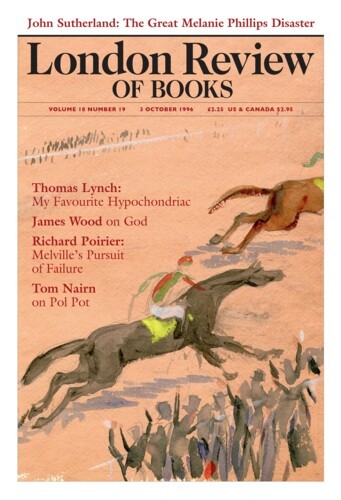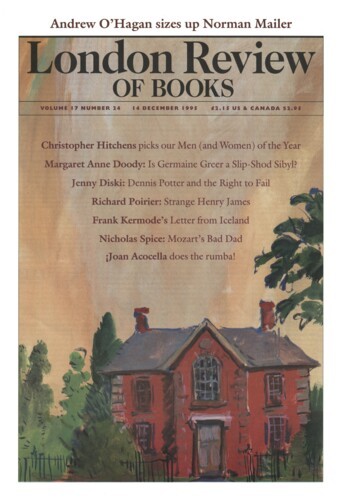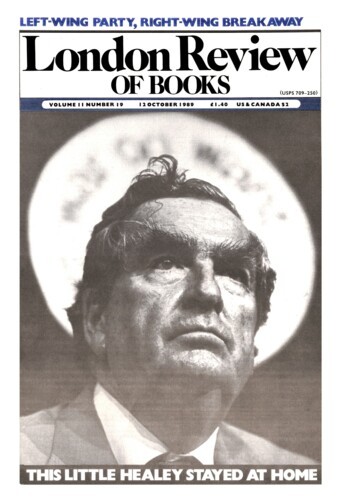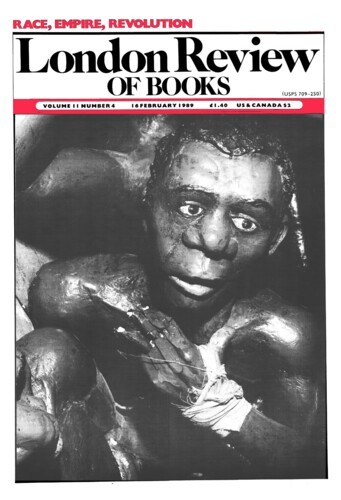The Monster in the Milk Bowl
Richard Poirier, 3 October 1996
Melville began writing Pierre, or The Ambiguities in August 1851; he had just turned 33 and was already the author of six books. The most recent of these, Moby-Dick, was about to be published, and reviews of it, largely negative in the United States and somewhat less so in England, would begin appearing while he was working on the new novel and negotiating the terms for its publication. Of the books already in print, only the first two, Typee and Omoo, had had much commercial success, and even Typee, which made him for a time a minor celebrity, had been criticised, as nearly all his works would be, for blasphemy and untruth, prompting his publishers to ask him to revise for the second printing, adding some assertions as to the veracity of the story and cutting some unflattering references to Christian missionaries.




